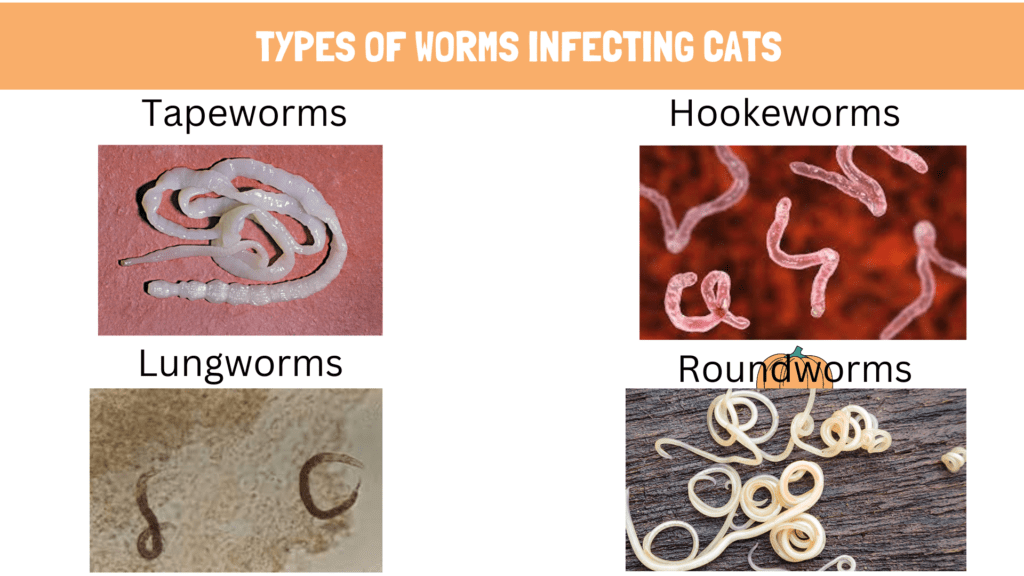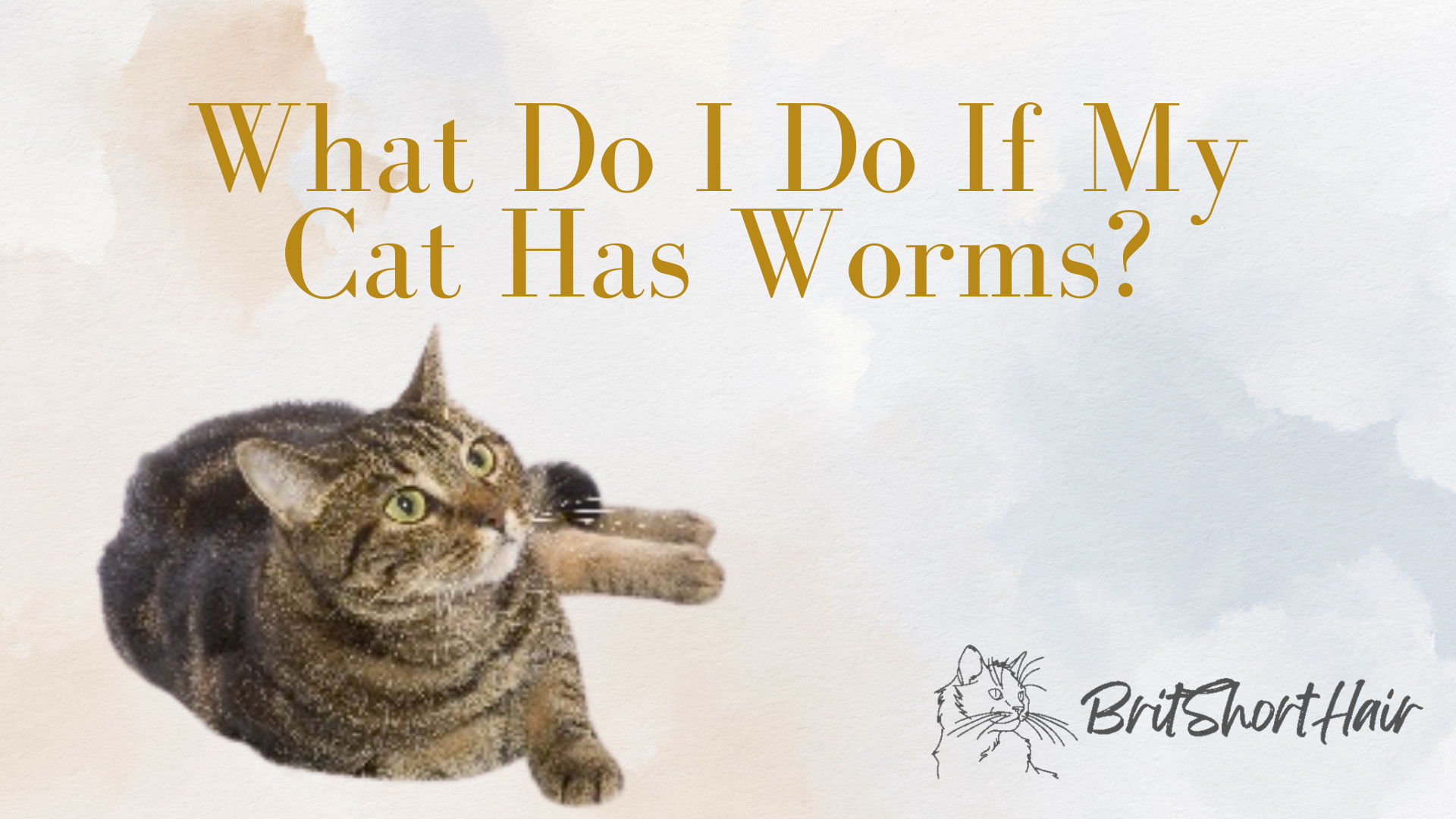Having a cat as a pet can bring a lot of happiness into your life. The sight of a contented cat has the power to instantly lift our spirits. Even when they have worms, it may look like your cat is in great health and happiness. Amidst the blissful mundanity of their daily lives, feline companions are unaware of the insidious army of parasites that breed, propagate, and flourish within their digestive tracts.
These minuscule monsters silently pilfer and suck out the very lifeblood of their hosts, gradually chipping away at their health and vitality. Regrettably, the toll of these microscopic predators on cats is not insignificant, manifesting in a range of symptoms that vary based on the species of worm that has taken up residence in their guts. In such situations, seeking out the expertise of a veterinarian becomes crucial, as they are trained to accurately diagnose the exact species of worm infesting their feline patient’s body, ensuring that they can receive tailored and effective treatment.
Cat with worm infections and their classifications
1. Tapeworms
Portions frequently move or creep around the rectum, and their appearance is similar to that of dried grains of rice or flat, white sunflower seeds. Cats that hunt and elderly cats are more likely to be infected with tapeworms than other types of cats. It’s possible that your cat won’t exhibit any symptoms of having tapeworms, but in other circumstances, they can cause vomiting and weight loss.
2. Hookeworms
Hookworms are a threat that should not be taken lightly by pet owners, despite the fact that they are not as frequent as tapeworms and roundworms. They enter the cat’s small intestine and feed on the blood of the animal, which might result in anemia in the cat. In extreme circumstances, they are capable of causing death, particularly in kittens. Adult cats who have had hookworms in the past may have developed some tolerance to these parasites, which is why they frequently do not display any indications of having the infection.
4. Roundworms
The creatures known as roundworms, whose nomenclature denotes their long and globular appearance, reminiscent of spaghetti that tapers to a point, are the subject of concern for many a cat owner. Despite this, it is imperative to realize that the eggs of these parasites are minuscule and undetectable to the unaided eye. That being said, one should remain mindful of the fact that kittens are at risk of contracting these worms through nursing from their mothers.
Moreover, adult cats and their youthful counterparts remain highly susceptible to infection if they happen to consume roundworm eggs or larvae, particularly if they come into contact with contaminated excrement left behind by an infected dog or cat. Furthermore, should they consume the flesh of an infected mouse or any other diminutive mammalian creature, this too can lead to the onset of roundworm infestation.
5. Lungworms
These deadly creatures make their home in the lungs of cats. Thankfully, they are not as prevalent and only rarely result in fatalities (unlike in dogs). Yet, they have been linked to breathing difficulties as well as harm to the lungs. Cats typically become infected with the parasite when they consume another animal, such as a bird or a mouse, that has previously consumed an infected mollusk. The parasite is carried by slugs and snails. Clearly, cats that chase slugs and snails or otherwise come into contact with them are at the greatest risk.

Symptoms of a Cat With Worm Infection
- Worms in the cat’s stool will be the first symptom recognized by the majority of cat owners. In the feces or vomit of your pet, you might find worms in their whole, pieces of worms, or even worm eggs. In addition, worms or eggs can sometimes make their way to a cat’s anus, where they become lodged in the fur.
- Your cat’s fur may appear dull, rumpled, or clumped if it is afflicted with a parasite. This can be caused by a lack of nutrients or dehydration.
- If your cat’s gums are pale or white in appearance, he or she may be suffering from anemia as a result of the worms. If your cat’s gums are pink and pleasant, the cat is healthy.
- Cats frequently throw up, but if this behaviour is out of the ordinary, it may be due to an infestation of worms. Worms are often the cause of vomiting in cats.
- Stools that are black and tarry point to the presence of blood, which could be caused by hookworms. Intestinal worms are another potential cause of diarrhea.
- Your cat will need to consume extra food in order for them to keep its body state stable as a result of the worms that are robbing them of essential nutrients.
Measures to Prevent Cat With Worm Infection
Your cat is in danger of contracting worms if it is either a newborn or an indoor-only pet because worms are common. If you want to keep your cat healthy and safe from worm, you need to worm it periodically. Cat owners can choose from a plethora of worming treatments to help them with the treatment and prevention of worm infestations. Products such as worm tablets, pastes, powders, and syrups are taken by mouth, while spot-on drops are applied to the back of the neck, close to the base of the skull, to combat various worm infestations.
Both roundworms and tapeworm can be treated by several different products, whereas others treat either one or the other. Your pet may contract intestinal worm from a variety of sources. Consuming raw meat raises one’s chances of getting sick. Whether your pet eats a raw food diet or goes on hunting trips, he or she has to be wormed regularly. Cats with intestinal worm often exhibit malaise, weakness, an unhealthy coat, and gastrointestinal issues like diarrhea and vomiting. Preventative therapy should be used regularly to protect your cat against infection.
Final Thoughts On Cat With Worms
Even though worm affect a lot of cats, they might cause major problems if you don’t take care of them. Diarrhea, loss of appetite, and the presence of worm in the feces are all telltale symptoms that your cat has a worm infestation. Practice preventive care by getting checks regularly, Maintaining a clean litter box is essential. Be sure to regularly clean your cat’s bedding. Removing and properly disposing of cat waste from outside places.
hey we have a lot of information on cats you can check out by clicking Bristhorthair.com
wants to follow us on social media

